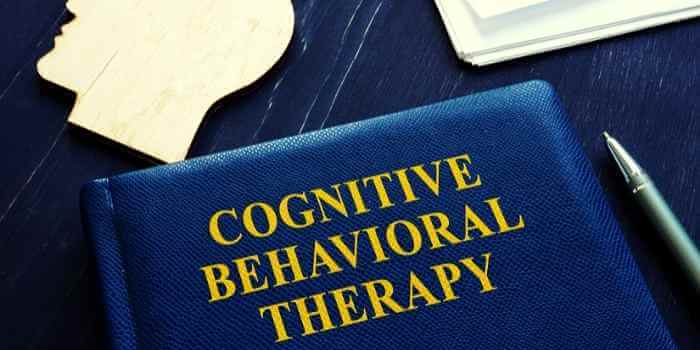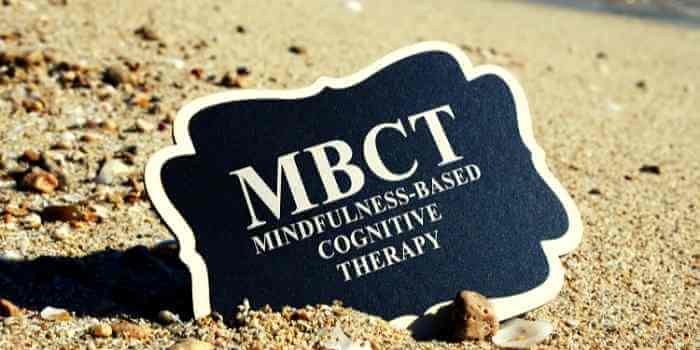
The world has become stressful and chaotic. People are struggling to find happiness through work and relationships.
In contrast, companies struggle to grow and thrive in an uncertain market. Society seems disconnected from what real happiness means.
Cognitive Behavioral Therapy (CBT) helps manage mental health problems. Teaching people critical concepts for improving problem-solving, decision-making, and self-awareness.
People don’t realize how the benefits of CBT can help them overcome mental health issues.
Without knowing what’s best for them, they don’t know where to start looking for information or find a therapist/psychologist.
Here, we’ll cover evidence-based information.
Cognitive-behavioral therapy

Cognitive-behavioral therapy is a psychotherapeutic approach that can help people to improve their mental and emotional life.
It is based on the idea that psychopathological disorder (in most cases) results from learning a maladaptive behavioral response pattern.
This approach starts from the idea that there is a close relationship between:
- Thoughts
- Emotions
- Behaviors.
The term behavior therapy or Behavior Therapy was introduced in 1958.
Cognitive-Behavioral Therapy (CBT) is a psychotherapeutic approach that combines the skills of cognitive psychology and behaviorism.
It helps individuals change negative thoughts and behaviors, leading to mental health issues.
CBT is a powerful tool for healing a wide range of problems, ranging from anxiety, stress, depression, and eating disorders to addiction, substance abuse, and relationship issues.
1- Lower Your Anxiety

Anxiety is a massive issue in today’s society. People spend hours and hours on their social media accounts and the internet but don’t feel better.
No matter how much you try to control your anxiety, it tends to find the root cause is something that you are unable to control.
The good news is that anxiety doesn’t have to be like this forever. CBT and others techniques have given us the chance to combat stress without having to take prescription drugs or go through therapy.
Research showed that CBT is effective for anxiety-related conditions such as panic disorder and generalized anxiety disorder. (source)
About 40 studies have shown that Cognitive Behavioral Therapy (CBT) has helped reduce anxiety and improve psychological health.(source)
CBT is an effective treatment for anxiety-related conditions such as panic disorder and generalized anxiety disorder.
2- Depression

Depression and anxiety are both physical and mental illnesses that can cause us to feel weak, worthless, and hopeless. They both can affect your performance, physical health, and even your sleep.
Research has proven that almost all successful people have experienced depression.
CBT will help you overcome this painful experience by providing a robust solution.
Depression is a severe condition that affects how we think, feel, and behave. It’s common in all ages, from adolescence to old age. The causes include stress, lack of sleep, and medical conditions such as anxiety and high blood pressure.
Research in 2014 showed that CBT treatment of depression significantly helped people. (source)
Another study showed us CBT produced more significant improvements among participants than other psychological and pharmacological treatments. (source),
Combined with CBT and other treatments such as antidepressants might be a much more effective treatment.
If you suffer from depression, we would suggest optimizing your brain chemicals in natural ways, such as:
- Exercise
- Vitamin D
- Magnesium, Zinc, and B6
- Rhodiola Rosea
- Quitting porn
- Cold Shower
- Wim Hof Breathing
- Mindfulness Meditation
- Sleep
These are proven ways to optimize your brain chemical. Yet, they’re fewer side effects.
For further improvement, you may try hypnosis and emotional freedom techniques.
Related: The Only Hypnosis Guide You’ll Ever Need
A new study published in the Journal of Affective Disorders suggests that cognitive-behavioral therapy may help people suffering from depression.
3- Low Self-Esteem

We, home-sapiens, are unfixable creatures that suffer from low self-esteem and mental disorders like depression and anxiety.
These mental disorders can sometimes lead to a downward spiral where we cannot get out of bed, even when life around us is flourishing. We’re often driven by feelings of worthlessness and a lack of self-confidence.
Low self-esteem might be named one of the leading causes of depression, anxiety, and other mental health issues today.
The word “low self-esteem” is used to describe the feeling of low self-worth or inferiority. It can be defined as a lack of confidence in a person’s abilities and accomplishments. Can you find out why people feel they are not good enough? What factors influence this feeling?
What causes low self-esteem?
Not just one cause. But mainly, society and family impact your self-esteem. CBT doesn’t deny external things might cause self-esteem. However, self-esteem is also caused by cognitive distortions.
Cognitive distortions are the most common causes of humans’ suffering and difficulties.
Cognitive distortions are not just a part of our everyday lives but can also affect our professional lives.
Cognitive distortions happen when we make judgments and decisions based on incorrect information.
3 Common Distortion :
- All-or-nothing Thinking: The world seems like black or white. The world is not in absolute black-and-white terms – we are all complex, and there are shades of grey. The way we see the world is complicated, but there is a scientific explanation.
- Overgeneralization: That is often used to describe the tendency of humans to make claims. A person’s cognitive biases result from our habits, experiences, and other factors. These biases can be caused by people’s upbringing (e.g., religion), genetics (e.g., IQ), and environment (e.g., sensory stimulation). However, we are not aware of our cognitive biases until they become conscious.
- Mental filter: We need to be more aware of the negative points in our lives. We all have negative and positive aspects in our lives. We filter them out using our perspectives & mental filter out all positive ones.
Cognitive-behavioral therapy focuses on being aware of these distortions and trying to change them.
Cognitive-behavioral therapy, a mental health approach, is focused on correcting behavior, rather than focusing on “coping mechanisms” or “coping with” processing. This should help reduce or eliminate the symptoms of depression or anxiety and promote better health and wellness.
4- Addiction

People who suffer from addiction are more likely to engage in risky behaviors such as drug use and alcohol abuse. Addiction is a serious issue affecting millions of people, and it is estimated that 1 in 5 people struggle with it.
Addiction can be treated with medication, counseling, or even therapy, but there’s no cure. To treat addiction effectively, you need an approach that will enable you to stop the behavior before it begins and prevent relapse.
CBT is a powerful tool for addiction. It can help us cope with our habits to alcohol, drugs, gambling, workaholism, and other behaviors
According to American Addiction Centers, Cognitive behavioral therapy is a powerful tool to treat drug addictions, porn addiction, and many other types of addictions.
It’s also an excellent tool for substance abusers who want to stop using alcohol or drugs altogether. (source)
A new study has revealed that people who suffer from addiction are more likely to engage in risky behaviors like drug use and alcohol abuse. It is well known that drug addiction leads to high levels of anxiety and depression.
Rational Emotive Behavior Therapy
Rational emotive behavior therapy (REBT) is a cognitive-behavioral approach to treating addiction. It aims at changing negative thoughts and emotions.
REBT is a cognitive behavioral therapy that focuses on the patient’s emotions and behavior. It is based on the theory that emotions result from thoughts and that when the patient can change their studies, they will be able to change their feelings.
5- Binge Eating

Binge eating is a growing epidemic in America, and its consequences can be devastating. It’s not just an issue for overweight people — binge eating affects everyone, from teenagers to seniors.
If you are a binge eater, you know how difficult it can be to stop yourself from eating that last piece of cake or ice cream.
You need to control your food intake and maintain your body weight. But, this isn’t as easy as it sounds! Binge eating is often accompanied by feelings of guilt, shame, and embarrassment, making it even harder to stop yourself from eating more.
The CBT therapist explains that your binge eating is based on emotional reasoning and helps you overcome it. (source)
Binge eating disorder is often characterized by compulsive overeating, bingeing, and purging. Binge eating disorder is a chronic condition that can be treated using Cognitive Behavioural Therapy (CBT).
6- Sleep issues

Sleep deprivation is a severe health problem that can cause many medical issues. A lack of sleep can also affect your mood, personality, and overall health.
We know how important it is to get a good night’s sleep.
Cognitive-behavioral therapy is a great tool to handle everything that might cause sleep deprivation.
Plus, if you suffer from a sleep issue, that might be caused by a lack of melatonin(sleep hormone).
According to a study conducted by the National Sleep Foundation at the University of North Carolina Chapel Hill, sleep deprivation can cause various health issues. So, we all must have enough sleep because it is good for our health
7- Retroactive Jealousy

You’re not alone.
It’s normal to feel jealous when you see your ex with someone else. But when you think this way about something that happened months ago, it’s called retroactive jealousy.
It’s hard to get over something that happened in the past. But it doesn’t have to be this way. You can get help from a therapist or counselor who can help you work through your feelings and learn how to cope.
Related: Why We Feel Jealous of People We Never Met?
CBT Can Helps

If you are suffering from retroactive jealousy, you might have felt it yourself, or your partner might have been affected.
Cognitive-behavioral therapy (CBT) is a form of psychotherapy that helps people cope with emotional problems like retroactive jealousy.
CBT can be used for both men and women as both genders experience emotions differently in the same way.

Social anxiety can be mild and treatable, but the most worrying side is the inability to perform in social situations.
Anxiety eats up so much time, making you feel anxious at home and in your surroundings. Everything is too stressful for you, both at work, school, and at leisure.
Social anxiety is among the most common causes of social phobia. This condition impacts your life and will also slow your productivity when working hours come along. You’ll start feeling stressed out before
Cognitive-behavioral therapy is an effective type of therapy for social anxiety disorder. (source)
This treatment can be used to treat people with this disorder by learning how to cope with their fears in real-life situations and improving their ability to control their emotions.
Cognitive-behavioral therapy is also used as a tool to help adults who are struggling in everyday life situations such as work or school.
Related: How to Confidently Live Your Life, Tips and Tricks
8- Post-Traumatic Stress Disorder (PTSD)

Post-traumatic stress disorder is a medical condition that affects up to 5% of the world’s population. It causes long-lasting psychological and physical symptoms and is the most common form of mental illness in those 15+ years of age.
Posttraumatic stress disorder (PTSD) is the most common yet least understood mental health condition among veterans and military service members.
Some techniques might help ease symptoms. Cognitive-behavioral therapy (CBT) is a form of psychotherapy that is designed to help people address and recover from psychological issues such as Post-Traumatic Stress Disorder (PTSD). (source)
For Posttraumatic stress disorder, there is another technique called: Emotional Freedom Technique.
In the survey, EFT was examined as an alternative to standard cognitive-behavioral therapy (CBT) for treating posttraumatic stress disorder in active military veterans with PTSD. (source)
Related: Emotions Burnout Is Real. Here’s How to Avoid It With EFT
9- Manage Anger

We all know that it’s sometimes hard to become calmer or feel overwhelmed by thoughts and the crazy things that could go wrong.
Even if you aren’t depressed, we all know it feels to feel wholly wired and anxious. That’s where Anger comes in.
By using Cognitive-Behavioral therapy, you may better manage your Anger. Sure, it doesn’t mean you’ll be completely free from Anger. But working far better with CBT
Cognitive-behavioral therapy is a form of therapy that teaches patients how to manage their Anger through techniques such as relaxation and self-talk. (source)
Plus, Anger sometimes becomes creative. CBT will help you express your Anger more positive way.
Anger is a function of physiology and psychology. In today’s world, people face a lot of pressure from work to family and life. Anger is a reaction when one feels a sudden urge to express anger or frustration.
Mindfulness-based cognitive therapy (MBCT)

MBCT is a relatively new treatment for anxiety, depression, and other psychological disorders
Negative thoughts and stress are typically associated with our daily lives — we all experience them at times.
Restoring an environment of peace, calm, and well-being is an essential element of MBCT. This therapy uses mindfulness (a form of meditation) and cognitive therapy (a way of treating mental issues through systematic cognitive techniques) as practical tools for changing your life.
. Research has shown that meditation techniques such as mindfulness-based cognitive therapy (MBCT) can help reduce depressive symptoms, anxiety, and cravings for addictive substances. MCBT is a significant development in the field of mental health. (source)
A recent study has shown that Mindfulness-Based Cognitive Therapy (MBCT) can be a safe, effective, and non-invasive treatment for people with depression. (source)
Related: Meditation
Summary
Emotions don’t always go our way – but they can be hard to control if we don’t know how to deal with them.
You are struggling with a negative mindset toward your peers and family members. You want to get better but don’t know where to begin and how to start.
Boost your confidence & mental health with Cognitive Behaviour Therapy (CBT). Our covers let you see the “real” side of others. You’ll be exposed to the problems and struggles of others and realize that there are good people all around you that need your help and support.
Can I teach myself cognitive behavioral therapy?
You can practice cognitive behavioral therapy yourself. Changing rational thoughts to non-rational ones improves your quality of life. However, there is clear evidence of success in treating mental illness; CBT can be difficult for people with complex psychological disorders and severe dementia.
What is the Cognitive behavioral therapy disadvantages?
Cognitive-behavioral therapy is primarily safe and effective. In some patients, cognitive behavioral therapy may not be effective. In such cases, a negative opinion may develop towards treatments. However, these risks are small, and behavioral therapy is highly effective at treating the root of problems and managing the consequences.
Why would someone need cognitive behavioral therapy?
Cognitive-behavioral therapy is a psychotherapy that helps people learn to control their feelings and thoughts. It can help people with anxiety, depression, or other mental health problems. In some cases, it increases productivity. It develops more rational thinking philosophically. It allows us to approach things more rationally.
Where can I found cognitive behavioral therapy in Dallas?
There are many behavioral therapy places in the USA. Dallas CBT provides customized cognitive and psychosocial measures to help patients improve their functioning to achieve optimal outcomes. Dallas CBT helps clients learn to identify and manage anxiety. It allows clients to overcome feelings of embarrassment and, in turn, improves self-confidence.
is cognitive-behavioral therapy evidence-based?
Cognitive-behavioral therapy is a method of more than 100 clinical studies. Nowadays, CBT is preferred by many therapists, and the number of studies is growing.